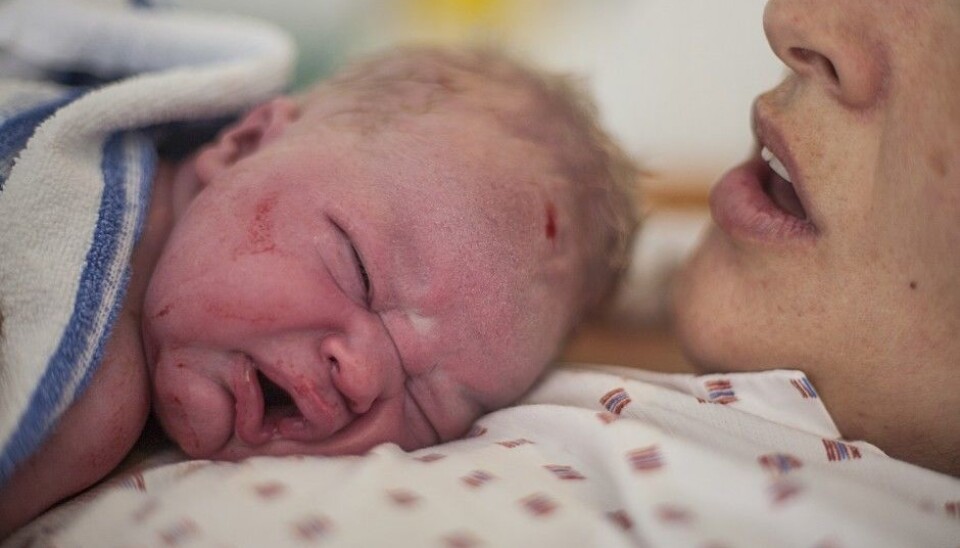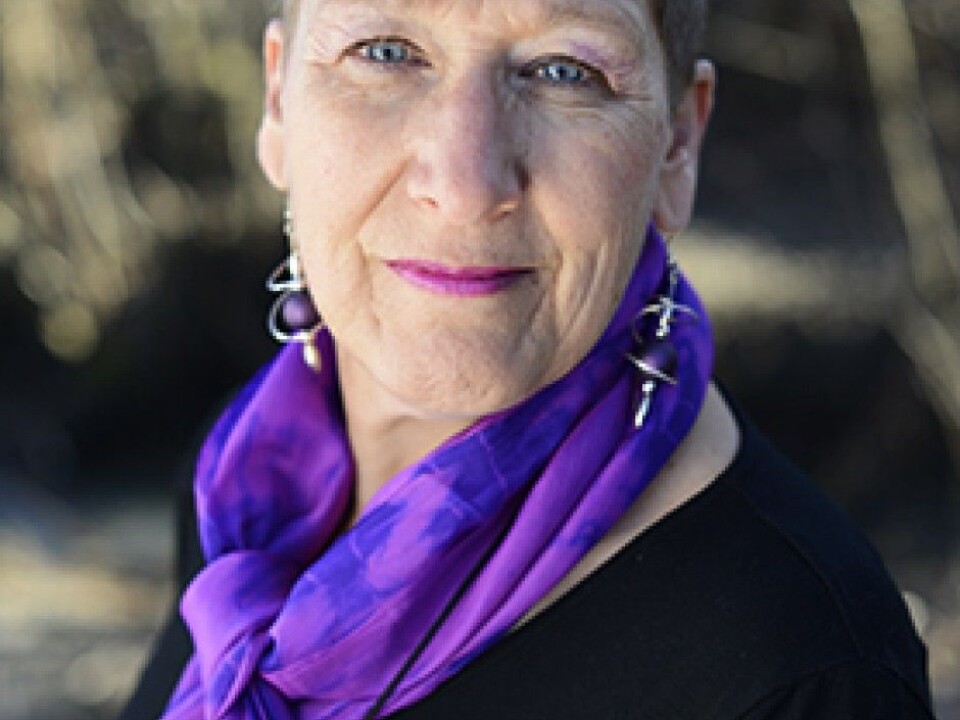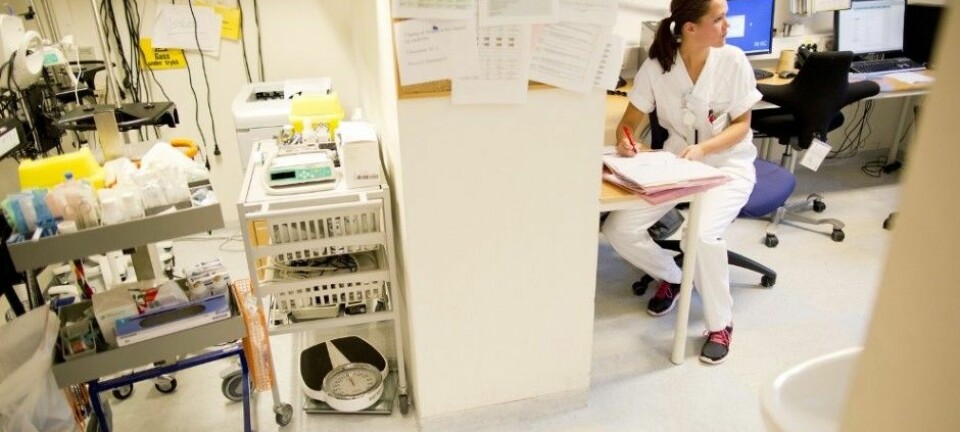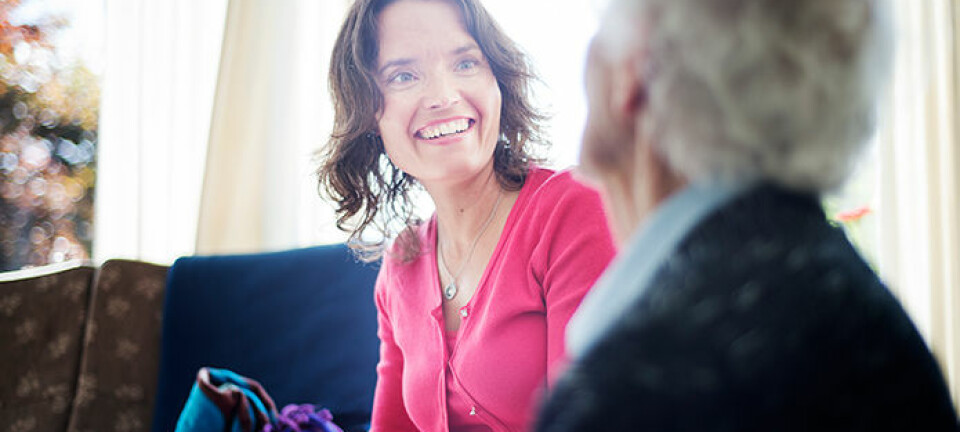This article was produced and financed by Oslo Metropolitan University

Abuse by health personnel leaves permanent scars
When women feel abused by health personnel while giving birth, there is a bigger chance that they will develop fear of childbirth and request caesarean section the next time round.
Denne artikkelen er over ti år gammel og kan inneholde utdatert informasjon.
What would you feel if you asked for an epidural prior to giving birth and were not heard? What if your request to be accompanied by both your husband and your mother while giving birth was blankly refused?
Or what if you, as a newly fledged mother, asked for help with breastfeeding and were met by an irritable midwife who bruskly pressed the baby against your breast?
Fifteen percent feel abused
There are many who feel abused by health personnel according to a study comprising 7 200 pregnant women from Belgium, Denmark, Iceland, Estonia, Norway and Sweden. In addition to abuse in connection with giving birth, some also felt abused in other situations.
The respondents included 2 500 Norwegian women who went for pregnancy check-ups. They answered a range of questions about abuse, including abuse in the national health services.

The study showed that approximately 15 percent of Norwegian women have felt abused. Approximately 56 percent of them have subsequently suffered from these experiences. They experienced the incidents to which they referred either as a child or as an adult.
Have great power
One of the questions in the survey was worded as follows:
Have you ever, in your contact with the health services, been exposed to gross humiliation or abuse, felt pressurised or that your views were not respected – so that you have subsequently suffered under what happened?
"This is a sensitive topic. On this point we must acknowledge that we, as health personnel, are not always kind and caring. Health personnel have great power at the same time as they experience a lot of stress and are subject to many requirements," says Mirjam Lukasse, researcher and midwife at HiOA.
She has participated in the project along with researchers from the five other European countries.
"The women's experiences were personal, but the feeling they are left with is that they did not receive enough care."
Increases the risk of fear of childbirth
Lukasse's study shows that these women have an increased risk of developing fear of childbirth and more often request caesarean section.
She believes that health personnel need to be more aware of their position of power in relation to the patients.
"'We must dare to do something about it when we witness unethical treatment of a patient by a colleague. We must also listen to patients who are brave enough to tell us about abusive experiences," she stresses.
"When a midwife encounters a pregnant woman who requests to give birth by planned caesarean section that is not warranted on medical grounds, she could perhaps ask the woman about her previous experience of the public health service. Childbirth could be an occasion on which one gains a positive experience of the health service."
Wide differences between the countries
The proportion of women who have felt abused by health personnel was highest in Estonia with 30 percent.
Estonia was followed by Denmark (25 percent), Iceland (almost 24 percent), Sweden (23 percent), Norway (15 percent) and Belgium (almost 14 percent).
"We asked the same questions in all countries, and they were descriptive questions. It is possible that what we researchers consider abuse is not considered abuse by the women or even by the health personnel. I say this thinking of Estonia in particular, where health personnel can be quite authoritarian. But I have no explanation of why Denmark, Iceland and Sweden score so much higher than Belgium and Norway," says Lukasse.
Vulnerable women most exposed
The most serious question in the study was formulated as follows:
"Have you experienced that health service personnel have intentionally abused you physically or mentally, exploited your body or your dependency for their own benefit?"
Only 0,2 percent of the Norwegian women confirmed that they had experienced anything of this nature as children or adults.
In Lukasse's view, the figures concerning women who have experienced serious abuse draw a picture of a very vulnerable type of woman.
They typically have financial problems, and some of them have experienced abuse previously. The abuse may be of an emotional, physical or sexual nature.
"Those who have experienced abuse are the most vulnerable," she adds.
-----------------------
Read the Norwegian version of this article at forskning.no

































